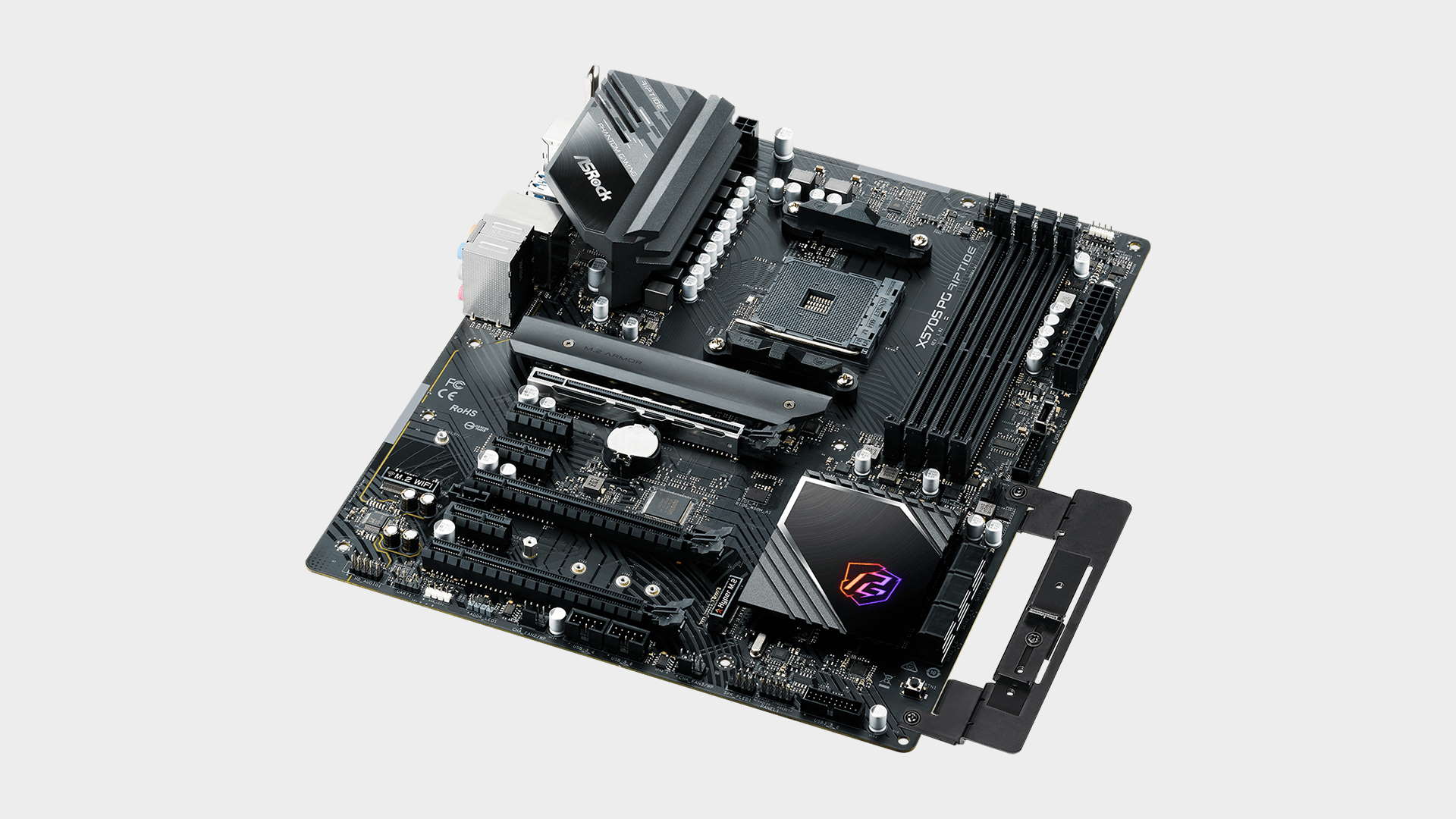Our Verdict
If you’re looking for a no frills gaming motherboard that offers solid PCIe 4.0 upgrading options, then the great value Asrock X570S PG Riptide is well worth a look.
For
- A great value X570 board
- Strong gaming performance
Against
- Lacks Wi-Fi
- Ageing ALC897 audio codec
PC Gamer's got your back
If you’re looking for a sub $200 AMD motherboard, the typical advice would be to look at one of the many quality B550 offerings. It’s important not to overlook the X570 versions, though. The basic chipset is a few years old, but with the newly released X570S models maybe it's time to take a more serious looks at AMD's top boards.
Importantly, the 'S' in the new X570S nomenclature denotes silence. Early generation X570 boards, with only a few exceptions, all came with pesky, whiny chipset fans. As well as passive chipset cooling, the new X570S boards enable upgraded connectivity options, including faster than Gigabit LAN or WiFi 6E.
The new ASRock X570S PG Riptide that we’re reviewing here doesn’t include things like this, but it is a $185 board, so you shouldn’t really expect it to. It does face stiff competition from a plethora of quality B550 boards in its price range, however, but all of those boards are missing a key characteristic that’s inherent to X570 boards.
And that's all to do with superior PCIe 4.0 support.
The X570S Riptide, like all X570 boards, features a PCIe 4.0 x4 link between the CPU and the chipset. This compares to a PCIe 3.0 link for B550. This means you’ll get better performance if you’re using two PCIe 4.0 drives, or multiple PCIe expansion cards. This factor alone may be the clincher that leads you to consider the X570 chipset over otherwise similarly performing B550 boards.
The X570S Riptide may not be what you would call a feature-packed board, but it does have most of the important features you’ll need to run a top spec gaming rig. Only one of the two M.2 slots is covered by a heatsink, though in fairness, an increasing number of high-performance SSD models are being shipped with optional heatsinks these days anyways.
There’s also no Wi-Fi, but there’s an e-key slot for an optional card, and those aren't super expensive if you want to add some wireless networking to your machine. We spot seven fan headers around the board, and two headers for USB 3.2 Gen 1 ports. There’s a single USB 3.2 Gen 2 Type-C header too.
RGB is minimal, with just a small PG logo atop the chipset heatsink, though there are ARGB headers if bling is your thing.
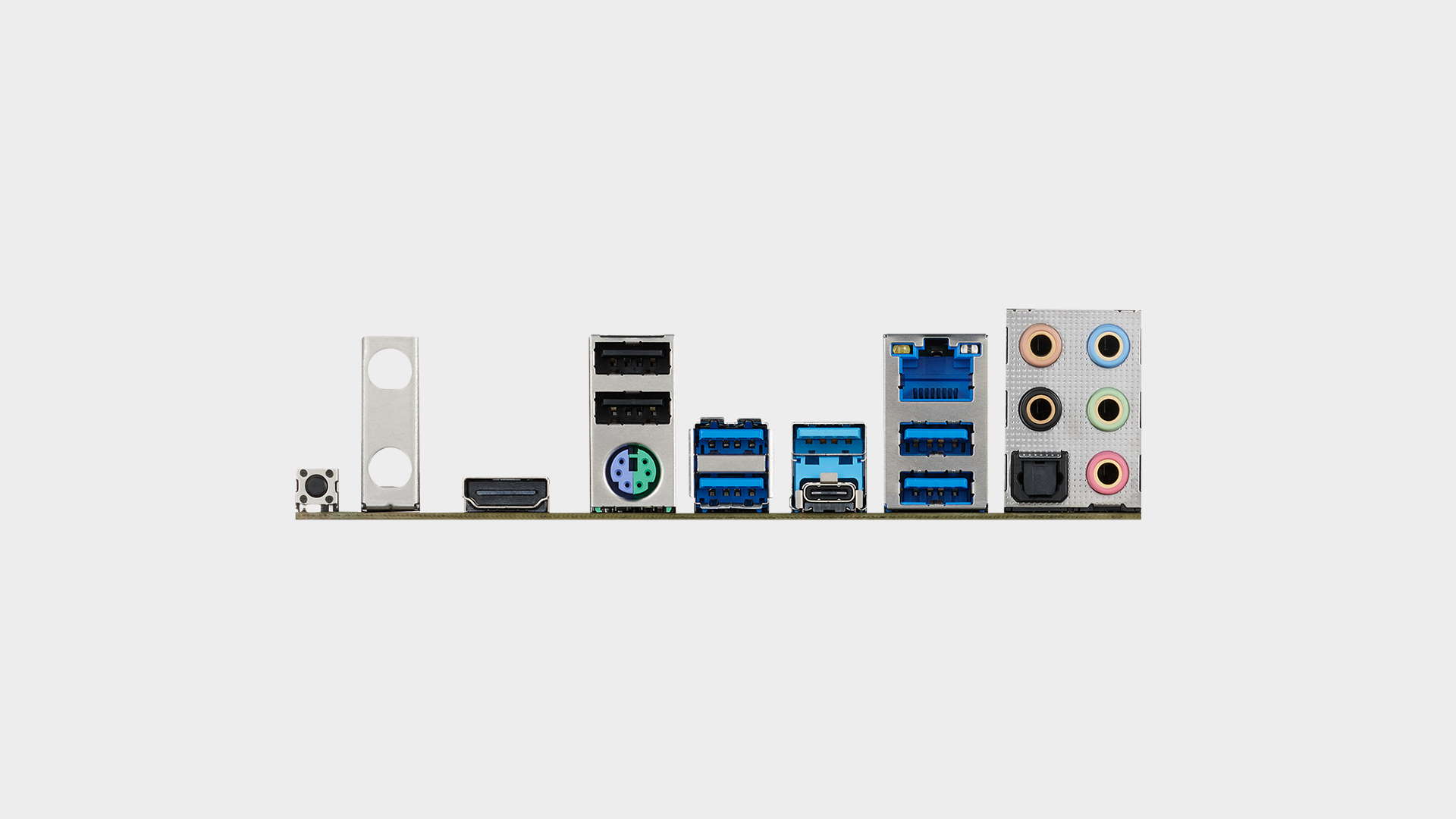
Form factor: ATX
Socket: AMD AM4
CPU support: AMD Ryzen 5000 Series, 4000 G-Series and 3000 Series Desktop Processors
Memory support: 4x DDR4 DIMM, up to 4733+ (OC)
Storage: 2x M.2; 6x SATA
USB: Up to 3x USB 3.2 Gen 2, 8x USB 3.1 Gen 1, 6x USB 2.0
Networking: Killer E3100G 2.5G LAN
Audio: Realtek ALC897 7.1 Channel HD Audio
Price: $185
The VRM is decent for a board of this class. You wouldn’t buy it to run a liquid nitrogen cooled AMD Ryzen 9 5950X, but its 10 phase 50a system is perfectly adequate for 99% of users, overclocked or not. A quick test with our AMD Ryzen 7 5800X saw a peak VRM temp of 53°C with PBO enabled.
The heatsink is pretty basic, and two of the phases have no cooling. Surely an extra dollar or two would have been justified, but all went well so we have no real complaint.
The rear I/O is reasonable for a board in this price range. There’s an empty bracket reserved for Wi-Fi antennas, plus a PS/2 combo port, CMOS clear button, and a welcome HDMI 2.1 port for use with one of AMD upcoming 5000-series APUs.
There’s also a standard set of audio ports including S/PDIF, but sadly, its driven by the ageing ALC897 codec. It’s outdated in 2021 and doesn’t belong on anything other than budget city boards. Network duties are handled by a Killer E3100 2.5G controller. Pure Gigabit is disappearing fast, and not a moment too soon. There are eight USB ports, made up of Type-A and C USB 3.2 Gen 2 ports, four Gen 1 ports and two 2.0 ports. All in all, it's a good selection of ports.
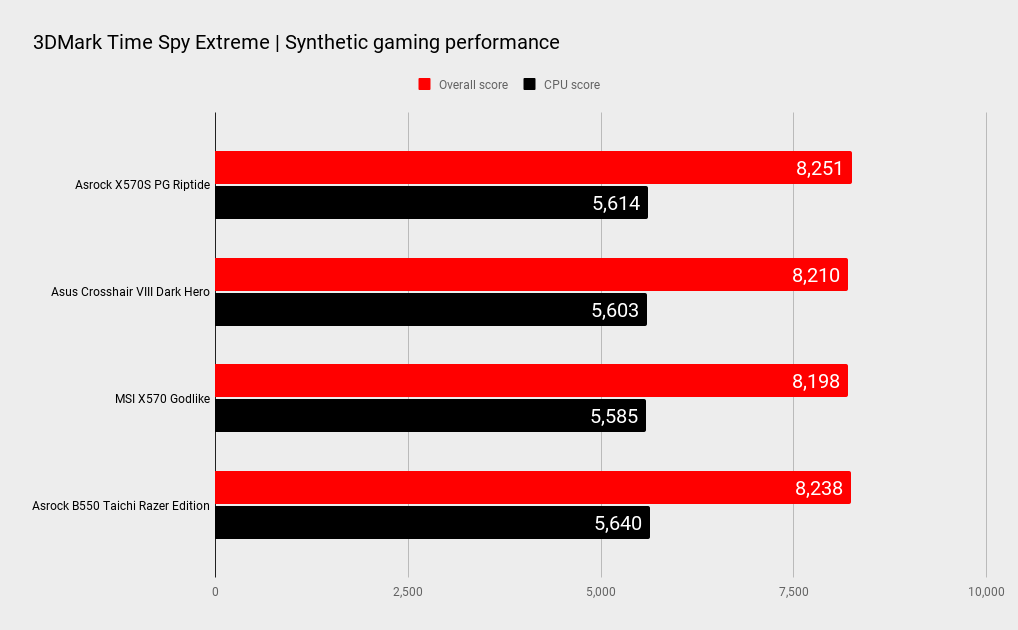
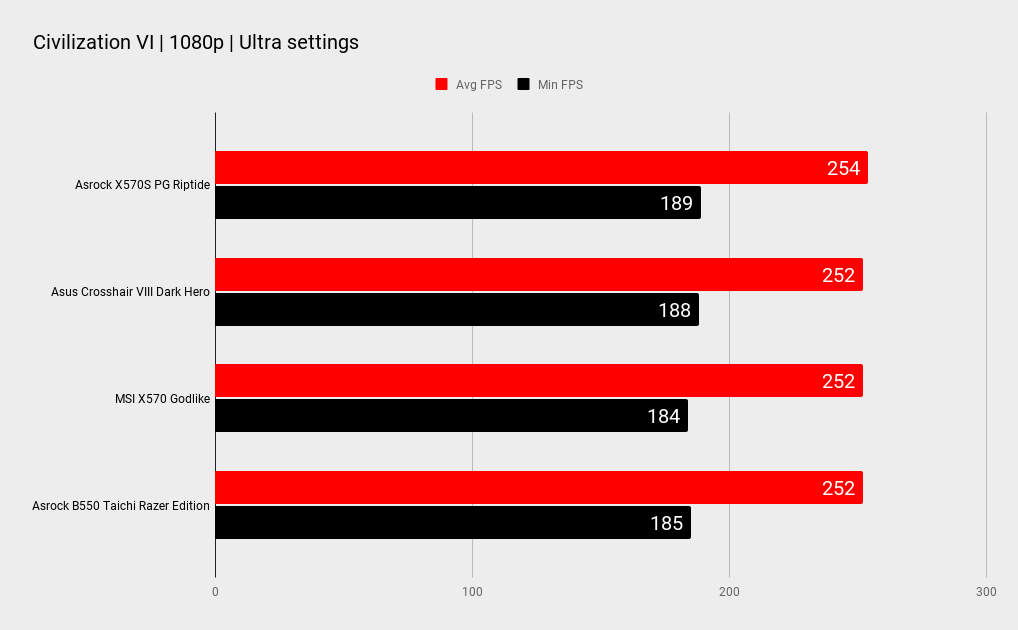
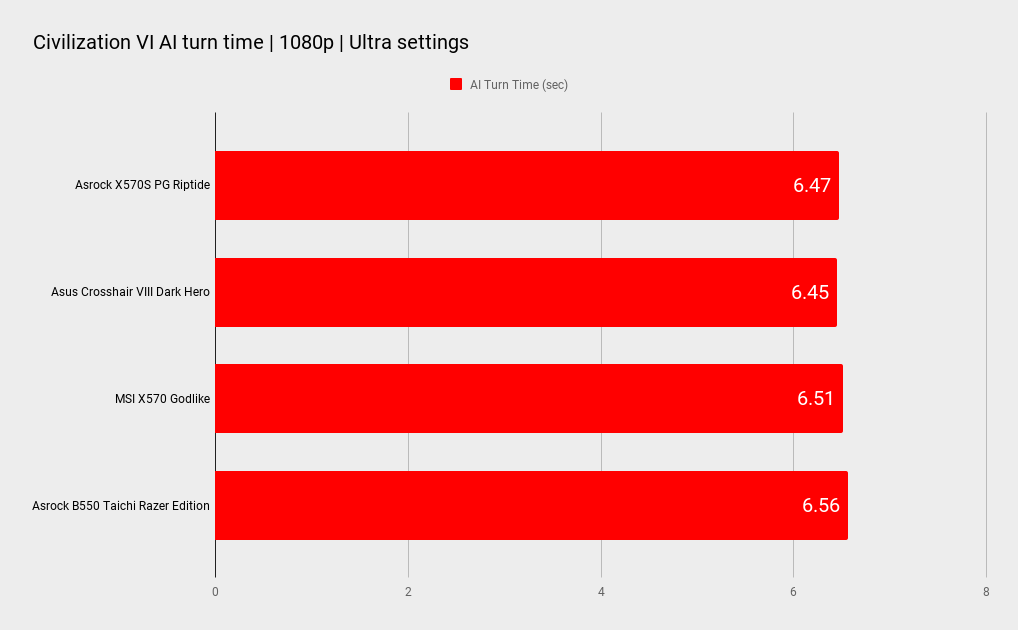
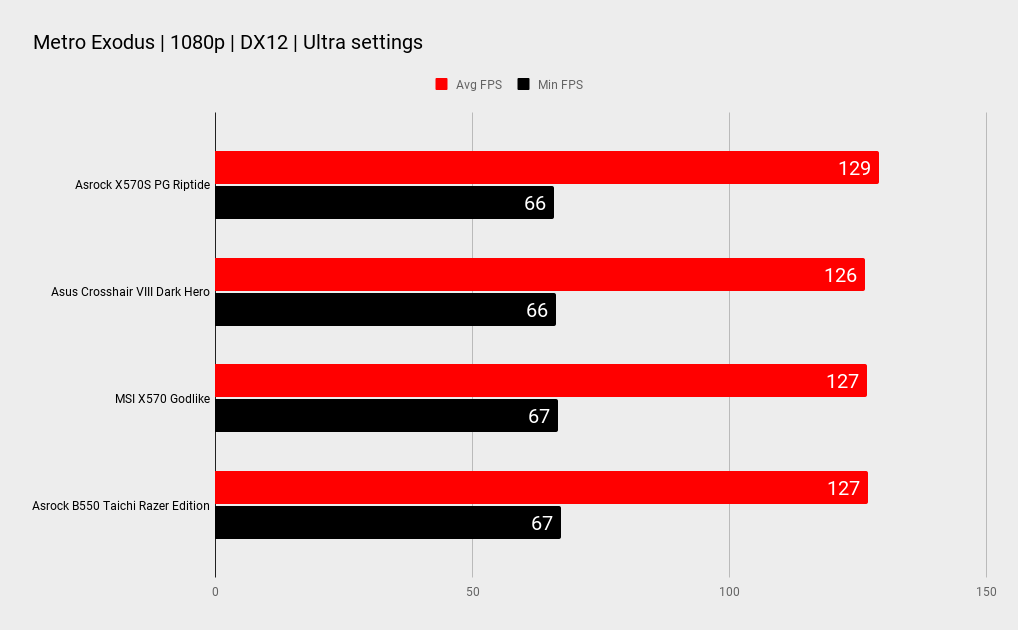
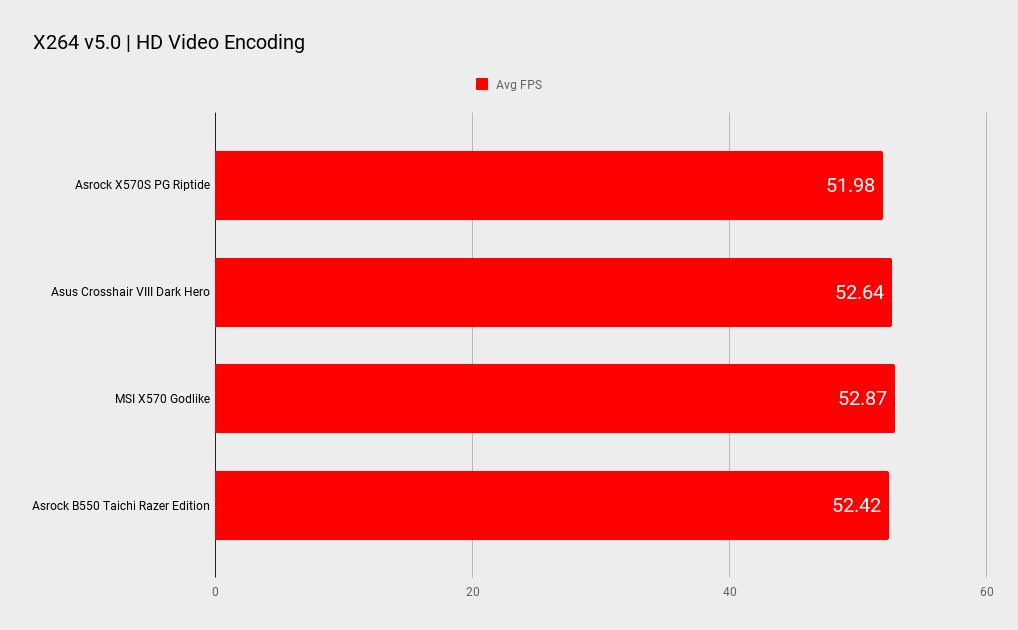
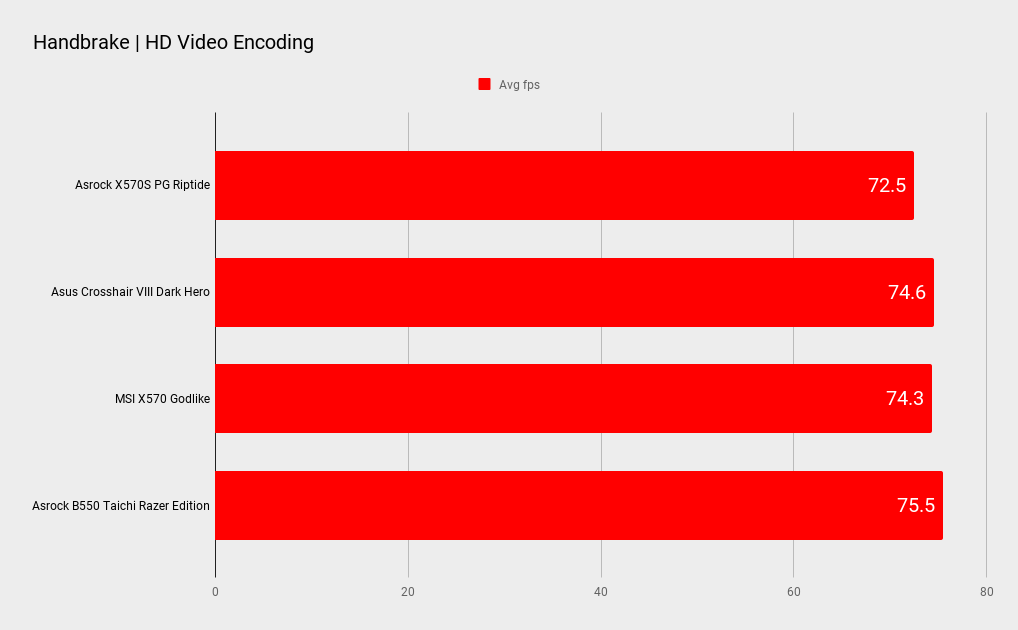
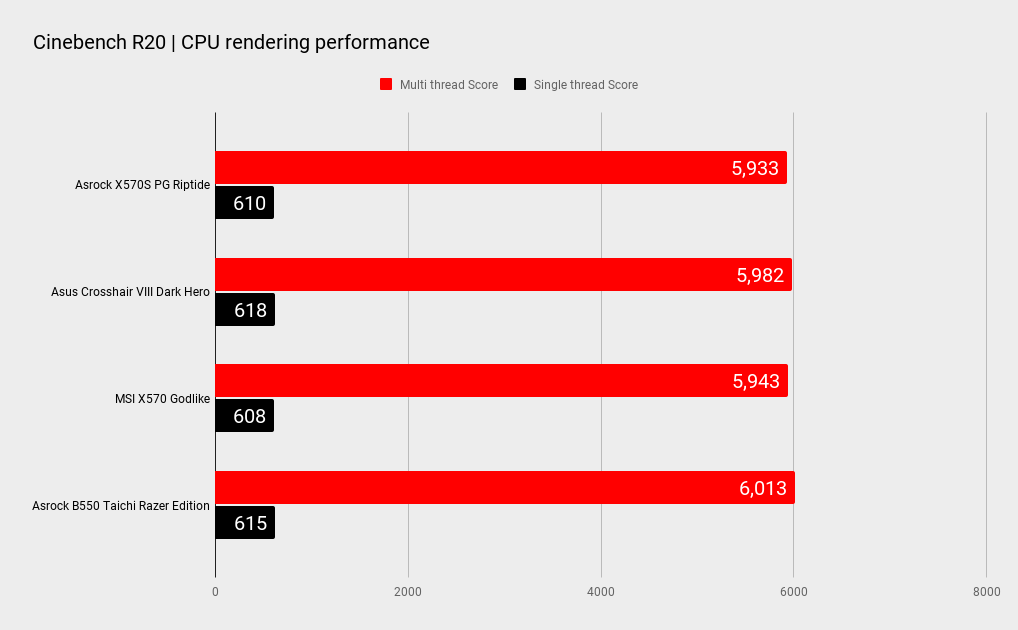
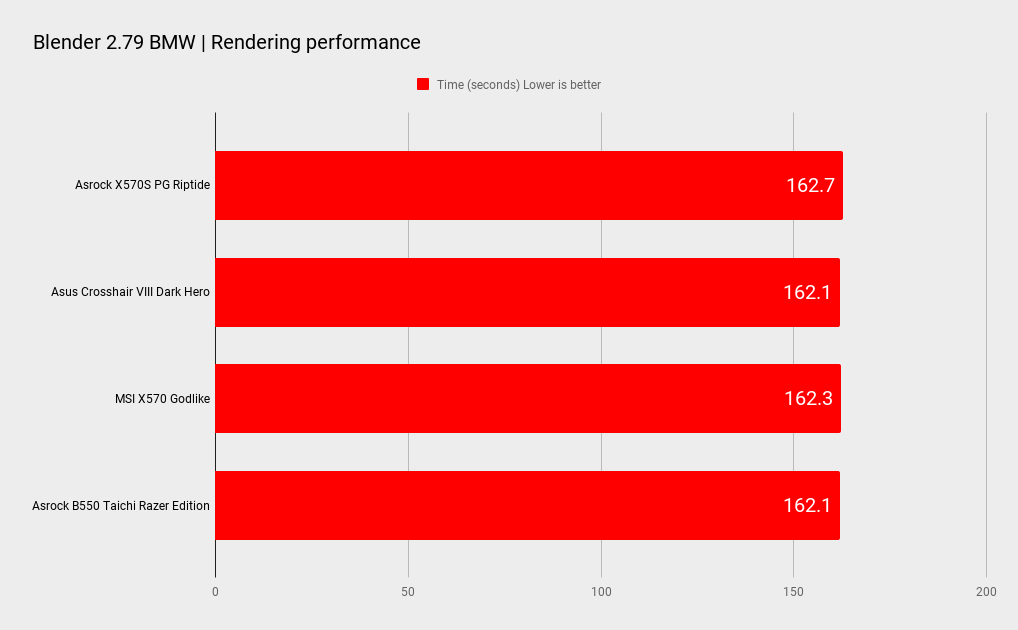
As we would expect from a mature platform, with years of design tweaks and BIOS microcode updates, our X570-based motherboards perform within one or two percent of each other, or within a margin of error.
The ASRock Riptide tended to be a little slower in productivity-based tasks, but proved itself to be good under gaming loads. Our recent experiences with ASRock boards typically show them to offer very good memory bandwidth, so perhaps that final 0.1% of BIOS polish is yet to come. Overall, there is little to complain about and, if you’re a gamer, you’ll be very happy.
We didn’t spend too much time with overclocking as that’s not a focus of this board. Its OC options are very limited anyway. A quick test with PBO worked well, though we thought the fan ramping curve was a bit aggressive. That’s nothing a little adjustment can’t fix though. If you can run your RAM at DDR4-3600 with XMP and Infinity Fabric at 1:1, you’ll get all the performance of a board at two or three times the price.
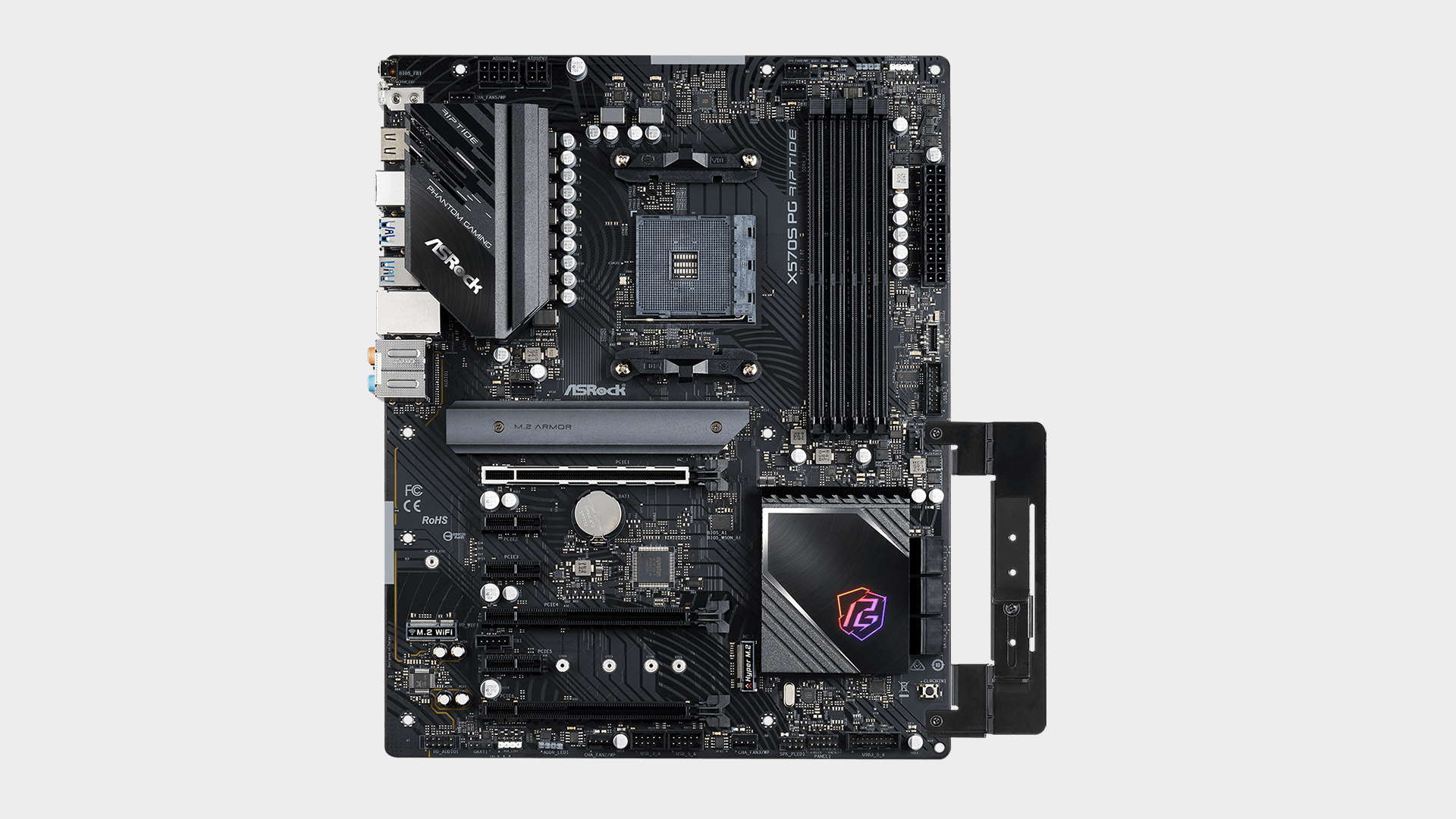
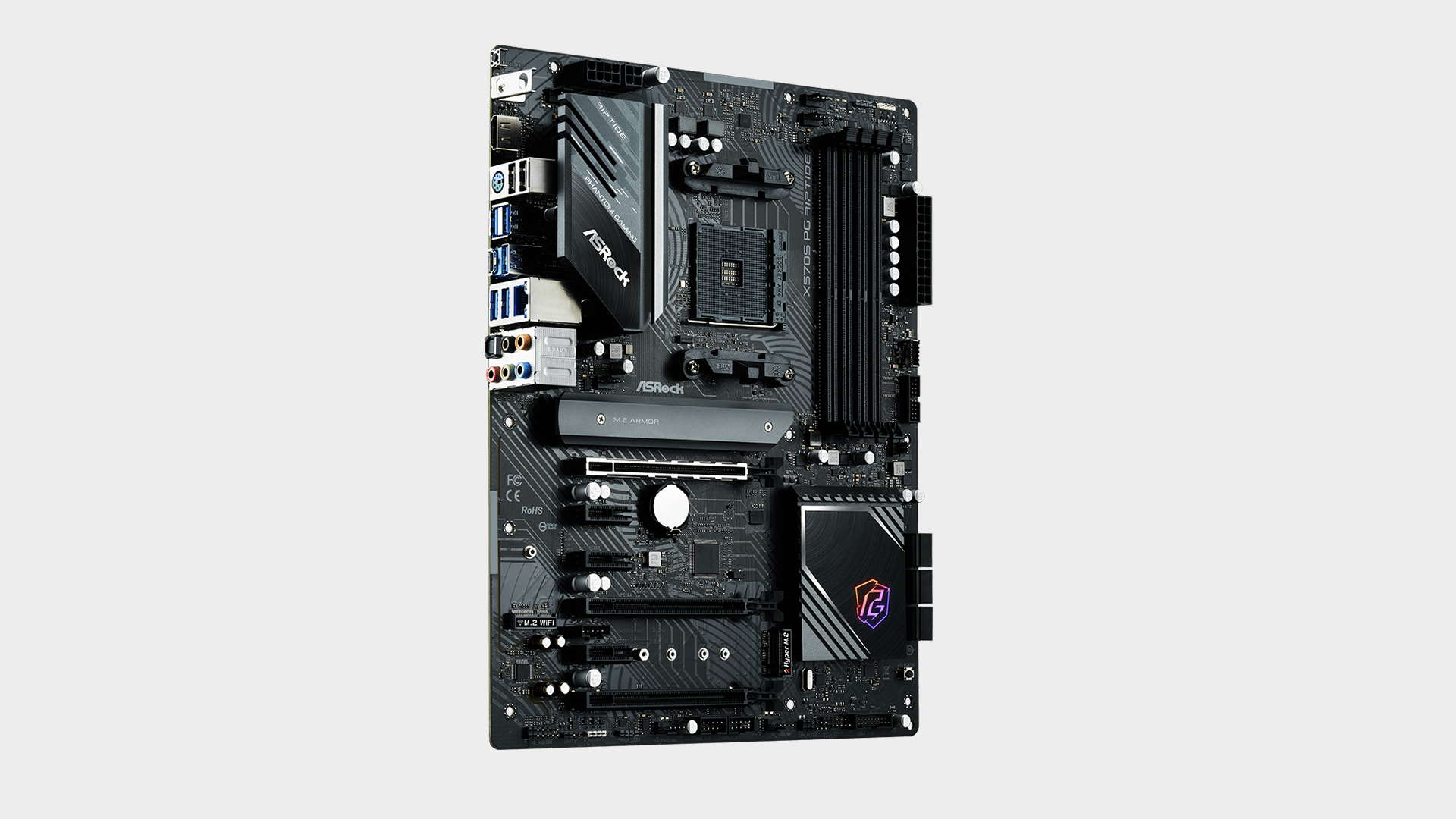
There are two schools of though when evaluating the X570S Riptide. And it all depends on what components you are running. As mentioned above, if you have two PCIe 4.0 drives and want to use them to their full ability, with or without other PCIe 4.0 expansion cards, then the X570 chipset is for you.
On the other hand, if you’ve got just one drive and a single PCIe 4.0 GPU, then a B550 board is worth a look, particularly models like ASRock’s own B550 PG Velocita which has an otherwise superior feature set.
Despite the apparent age of the the chipset, X570S boards have a viable upgrade path ahead of them. For example,you could easily drop in a Ryzen 9 5950X, or more excitingly, a stacked cache model if, or when AMD releases them. Plus there’s the fact that PCIe 4.0 is becoming ever more common place, further strengthening the advantage the X570S Riptide has over B550 competitors.
The X570S Riptide is a solid budget offering that will happily take a place at the heart of a top spec PCIe 4.0 system. It won’t win the feature showdown battle with more expensive boards, but if you’re looking for an affordable motherboard for a fast gaming system it's a great shout. Especially if you value one that's silent and well built, but free of superfluous extras that do nothing for performance. The ASRock X570S PG Riptide, then, is a strong budget contender for best AMD motherboard.
If you’re looking for a no frills gaming motherboard that offers solid PCIe 4.0 upgrading options, then the great value Asrock X570S PG Riptide is well worth a look.

Chris' gaming experiences go back to the mid-nineties when he conned his parents into buying an 'educational PC' that was conveniently overpowered to play Doom and Tie Fighter. He developed a love of extreme overclocking that destroyed his savings despite the cheaper hardware on offer via his job at a PC store. To afford more LN2 he began moonlighting as a reviewer for VR-Zone before jumping the fence to work for MSI Australia. Since then, he's gone back to journalism, enthusiastically reviewing the latest and greatest components for PC & Tech Authority, PC Powerplay and currently Australian Personal Computer magazine and PC Gamer. Chris still puts far too many hours into Borderlands 3, always striving to become a more efficient killer.
